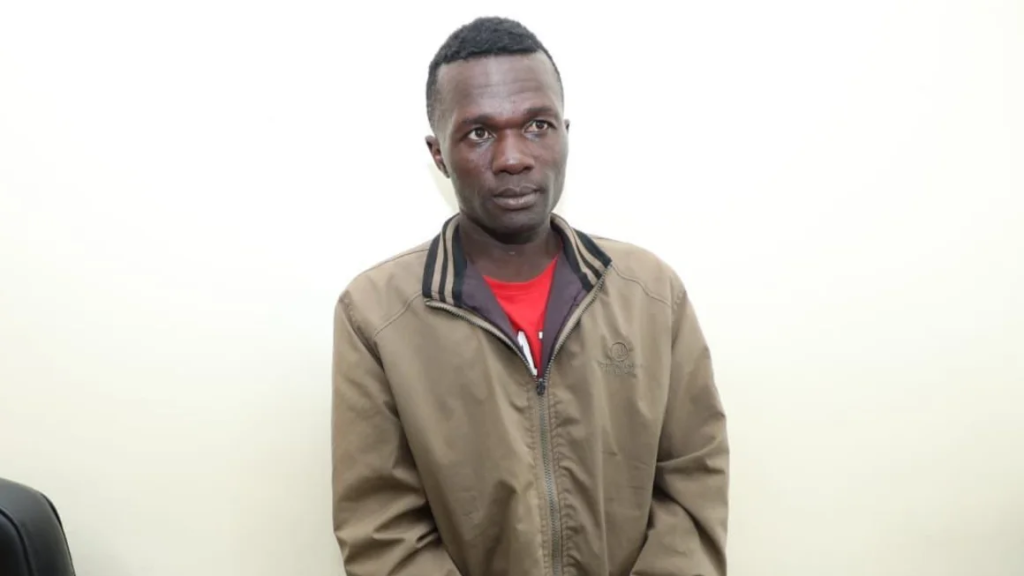A suspected serial killer Collins Jumaisi Khalusha, 33, has confessed to murdering 42 women over the past two years.
Police in Kenya revealed that Khalusha “lured, killed, and disposed of” the women. So far, only nine bodies have been recovered.
On Monday, Khalusha was apprehended in Soweto, east of Nairobi, at 3 a.m., outside a club where he had gone to watch the Euro 2024 soccer final.
According to Kenya’s Director of Criminal Investigations, Mohamed Amin, Khalusha confessed to the murders during interrogation, stating that all the killings occurred between 2022 and July 11, 2024.
The bodies, many of which were severely dismembered and decomposed, were found in sacks at a dumpsite near his home.
Khalusha’s first victim was his wife, whom he strangled and dismembered. He used a machete, nylon sacks, rubber gloves, a hard drive, and multiple smartphones in his crimes, all found in his rented house.

The arrest followed forensic analysis of a mobile phone belonging to one of the victims, Josphine Mulongo Owino, which led investigators to Khalusha.
The murders were uncovered when residents of Kware in Nairobi’s Mukuru kwa Njenga neighbourhood discovered six bodies in an abandoned quarry used as a dumpsite.
Khalusha lived nearby, raising questions about how he evaded detection for two years, especially since the site is close to a police station.
Following the arrest, Acting Inspector General of Police Douglas Kanja announced the transfer of all officers from Kware Police Station to ensure a fair investigation. Kanja and Amin assured the public that the investigation would uncover the full extent of the crimes and identify any additional persons of interest.
The gruesome case has sparked calls for increased protection for women in Kenya.
Kajiado lawmaker Leah Sankaire Sopiato and other female leaders urged the re-establishment of gender desks at police stations with well-trained officers to address gender-based violence. They emphasised the need for swift action to prevent further femicide.
Authorities are exploring various hypotheses, including the possibility of the murders being linked to cult activity or rogue medical practitioners. The investigation faces challenges due to a hostile public, but police are urging cooperation to ensure a thorough and effective inquiry.


